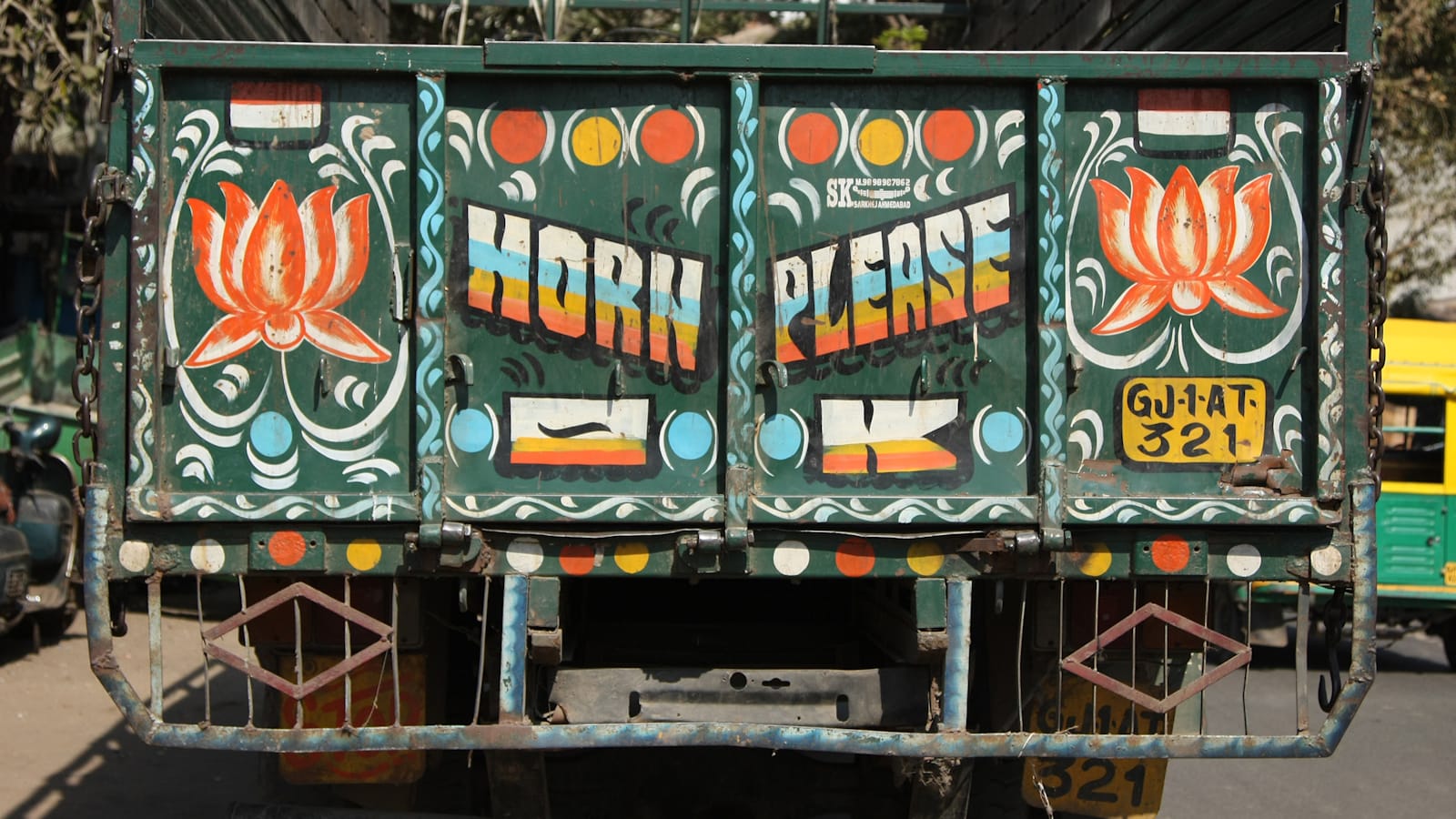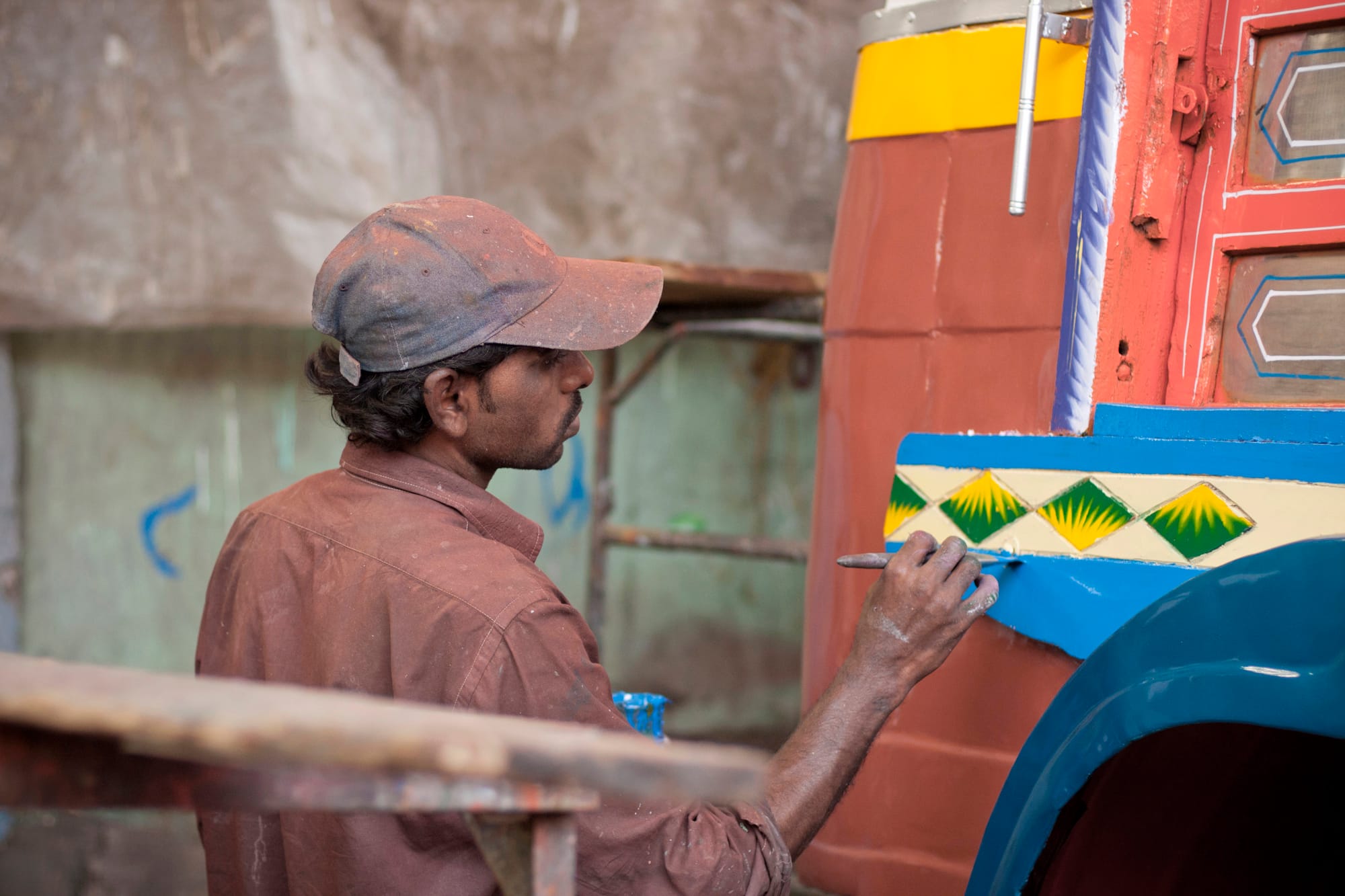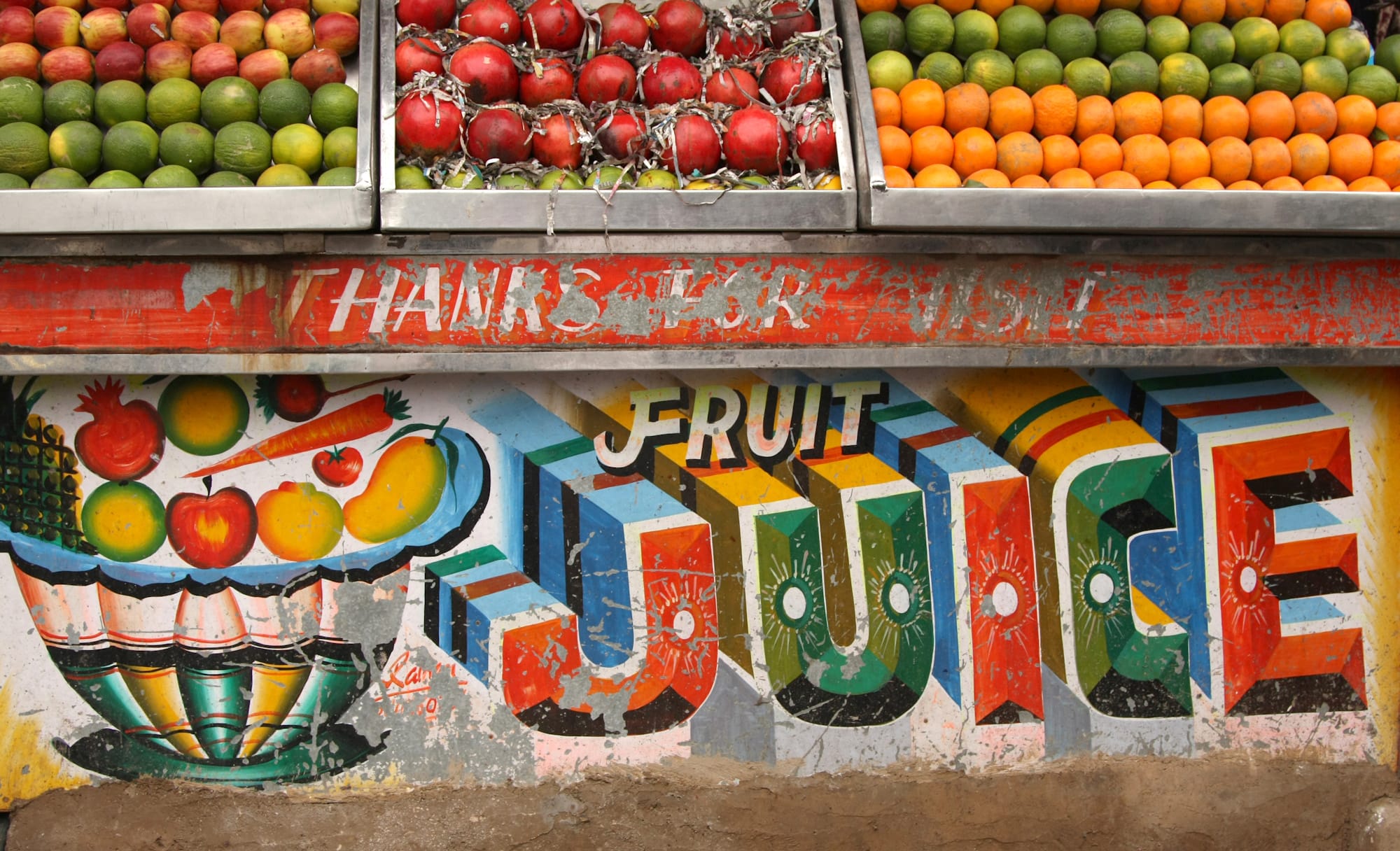India's Sign-Wallas: On the Brush on the Subcontinent
Meena Kadri takes us to India to appreciate the flamboyant work of the country's 'sign-wallas'.

I've long been in awe of the sign painting in India and, for the London screenings of Sign Painters, I paired the film with Shantanu Suman's wonderful Horn Please documentary.
I was therefore chuffed when Jill Strong sent me a LAB magazine article by Meena Kadri which included a wonderful set of photos from her travels on the subcontinent. I invited Meena to adapt the article for BLAG, which I'm delighted to share below.
Sign-Wallas: An Exploration of Graphic Exuberance in the Indian Streetscape
Text and all photos by Meena Kadri.

Indian streets are a constant source of visual chatter, with varied voices that compete for our attention. This can be seen in the multitude of signs that one is confronted by on urban streets. Anyone can advertise, attract, instruct and inform—and such intentions find diverse expressions in street-based graphic signage.
The desire to decorate and embellish is evident everywhere, from temples to taxis, minarets to match boxes, palaces to painted signs. Not much escapes decoration and often the mundane is elevated through the painter’s brush. Decorative devices can be understood as a kind of sweetener—a sort of coping mechanism to counter the sometimes challenging realities of existence in India.

Customise and Communicate
A factor driving the flamboyance of Indian lettering is the desire to customise: humans crave belonging, but also strive to differentiate. In such a profound population pool, the drive towards standing out from the crowd, while maintaining shared expressive boundaries, provides a continued source of stimulation for sign painters.